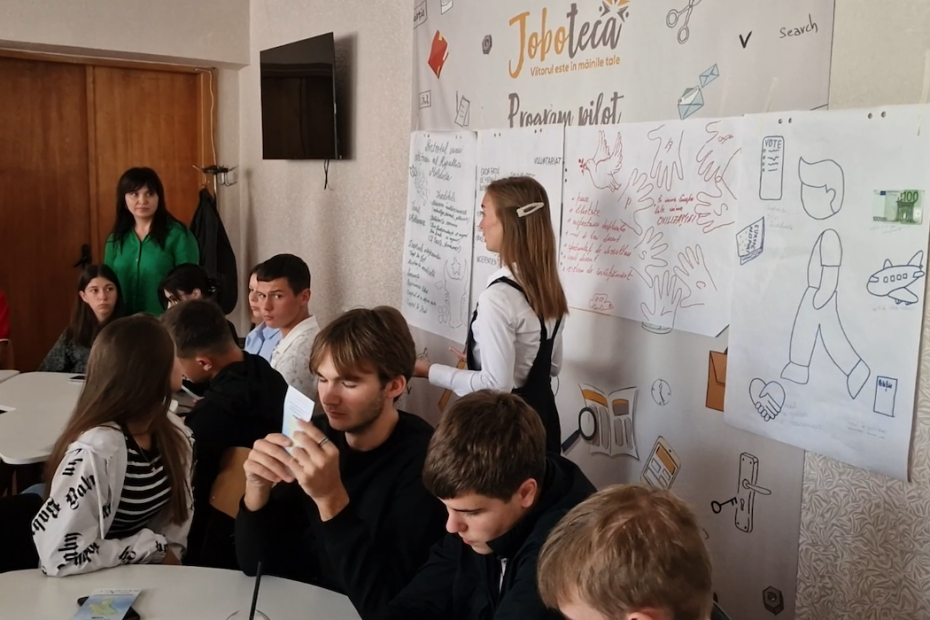The penultimate day of the Caravan in Moldova took place on 29 September in the center part of the country in the town of Causeni. There were seminars and discussions on democratic citizenship, civic participation and historical memory.
During the seminar on democratic citizenship, participants discussed the rights and duties of citizens.
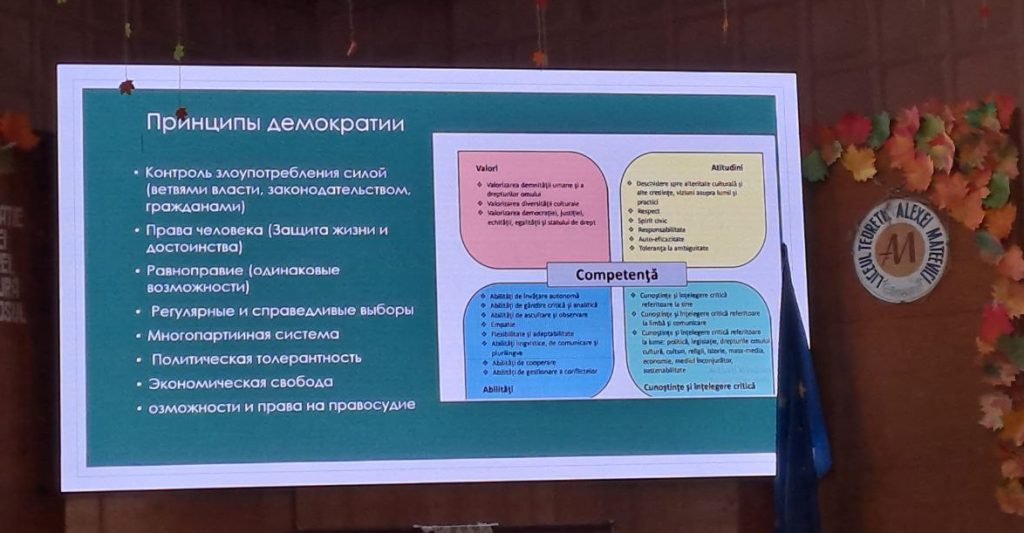
The topic of the democratic approach to learning was also of great interest to the audience. Here is how it was presented by Nino Gvaramadze (Georgia):
The democratic approach in teaching is:
1) making rules and following them. The school/class should have rules that are developed together with the student.
2) group work
3) students should be aware of the criteria by which they are evaluated. Criteria are also best developed with the learners when they can suggest their own.
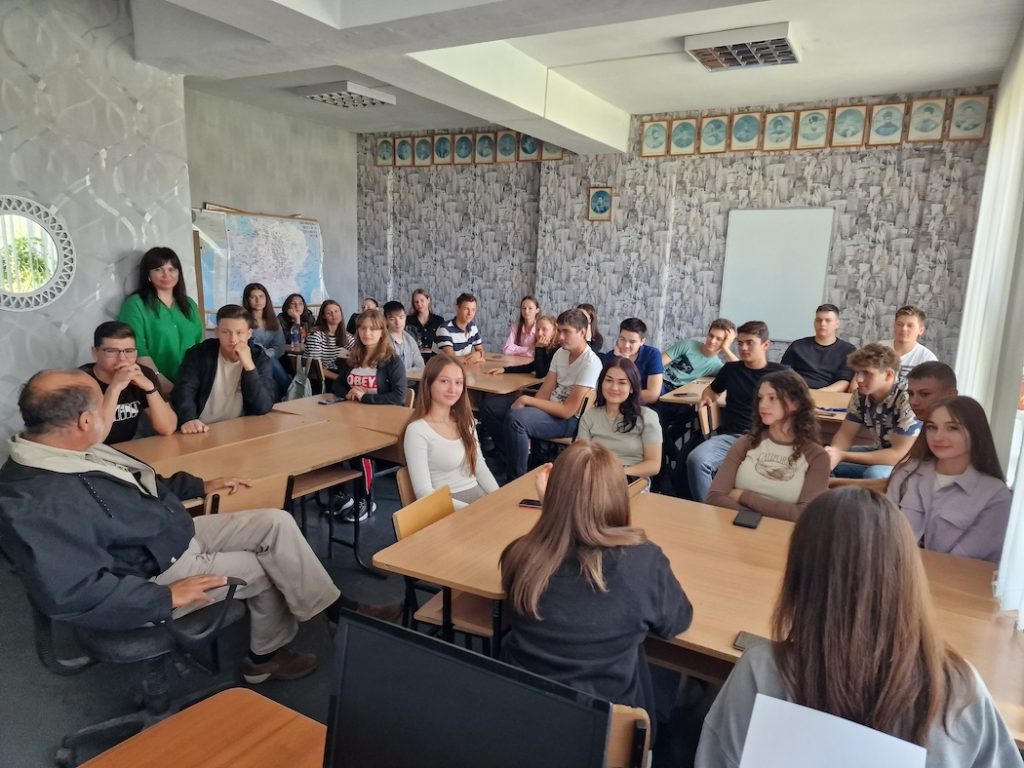
The importance of projects in the learning process of formal education was also emphasised:
A project (not a presentation, report or similar) develops a vision of the problem (it gives the opportunity to understand that there is a problem and to see it generally in society) and develops the skills of planning, analysing, implementing, reacting, finishing and communicating in society. These skills must also be present in the educator, who supports if necessary.
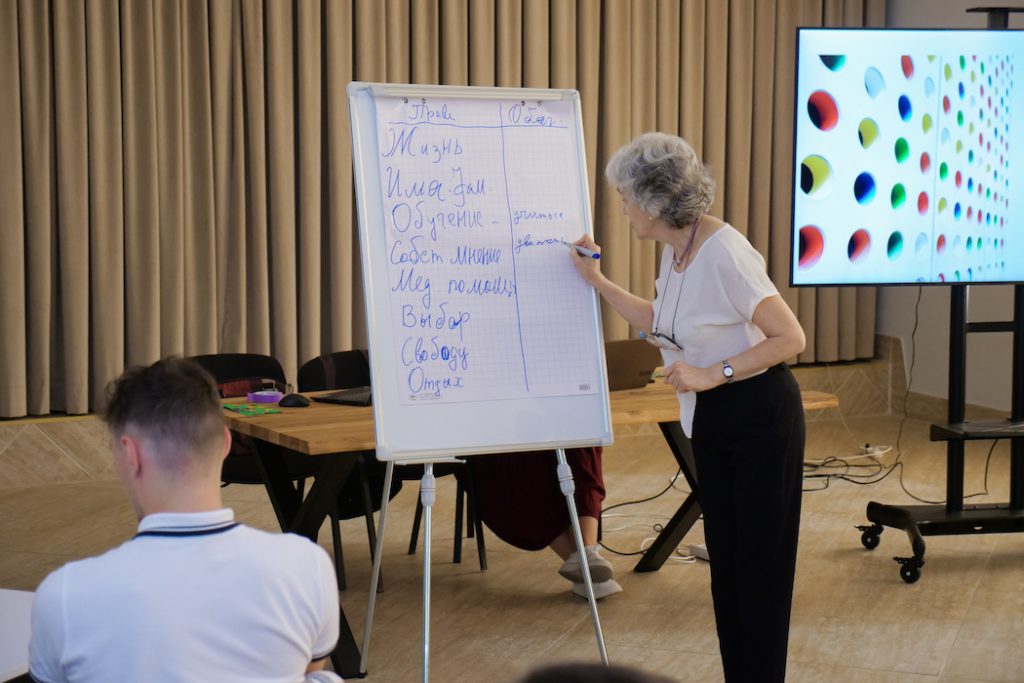
Quotes of the day
If we do not respect the rights of others, no one will respect our rights.
We must not only teach rights, but also show that they are values (which, by the way, and unfortunately, can be quickly lost).
One of the tasks of civic education is to develop cultural intelligence.
If we do not treat students with respect, the effect of learning will be nil.
Afterward, the Caravan team was divided into two parallel workshops focused on the pupils of the Alexei Mateevici High School.

Moldovan facilitators had the mission to debate the topics ”National citizenship vs. European citizenship” and ”How to use the past to build sustainable societies”, where we highlighted that:
”A European citizenship can’t be functional without a strong national civic education, because a true European citizen first has to focus on the local, regional and national civic engagement in order to bring value into European culture”.
After the seminars and master classes, the Caravan team conducted a tour of local attractions, namely the Church of the Assumption of the Blessed Virgin Mary in Causeni, which is an architectural monument built in 18 c.
Also, the team visited the Monastery of the Holy Myrrh-Bearing Martha and Mary, where the monastery operates a Theoretical Lyceum with an art focus for high school graduates, and in the summer a free Spiritual Work and Rest Camp is organized for students of secondary schools.
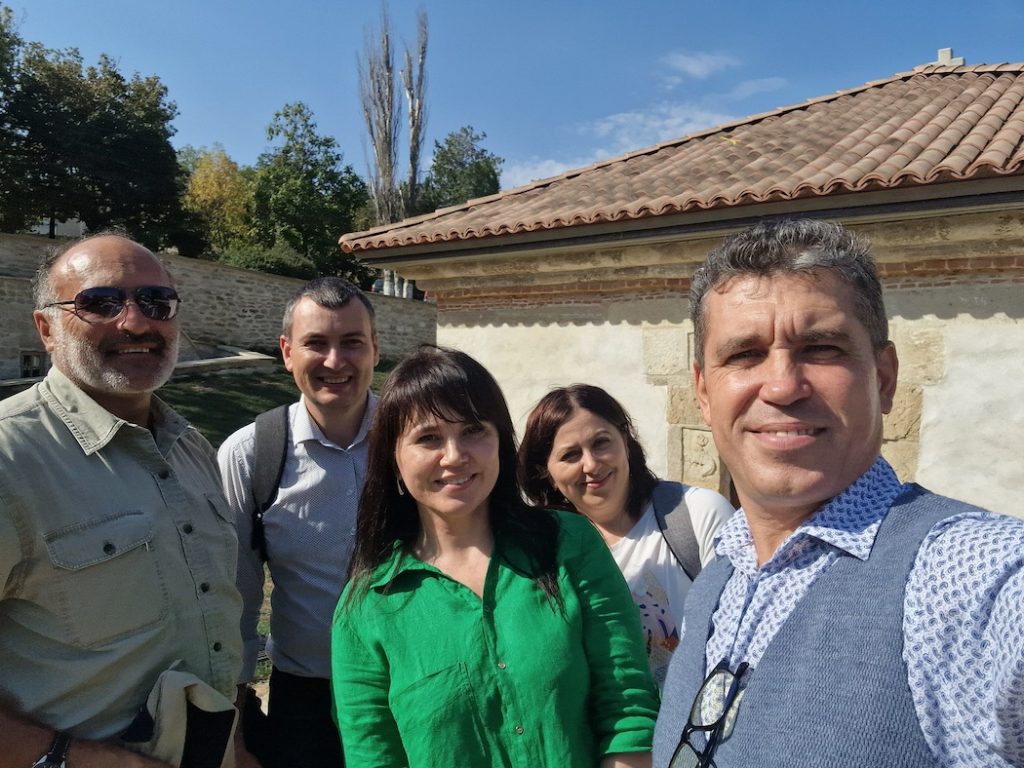
We believe that through civic education we can move forward the history in its right way because the main purpose of democracy is to make people’s voices be heard and that is why we have to try to involve as many citizens as we can in order to make right and real changes in the world.
On this day, the Caravan team had the opportunity to hear a variety of opinions on the topics mentioned above from students and teachers of local high schools. The debate has been as effective as we expected, with participants wanting to learn more about civics education and how they can improve their communities.
Caravan in Moldova is organized by Eastern-European Association for Citizenship Education under support of the Federal Agency of Citizenship Education of Germany (bpb) and funded by German Foreign Office.
Read more:
Citizenship Education Caravan in Moldova: get to know the programme and the experts
The EENCE Citizenship Education Caravan has officially started in Moldova
The Caravan of Citizenship Education visits to northern regions in Moldova. Day 2
The Caravan of Citizenship Education in Moldova. Day 3 – Soroca
EENCE Caravan continues its journey through Moldova. Day 4 – Strășeni
